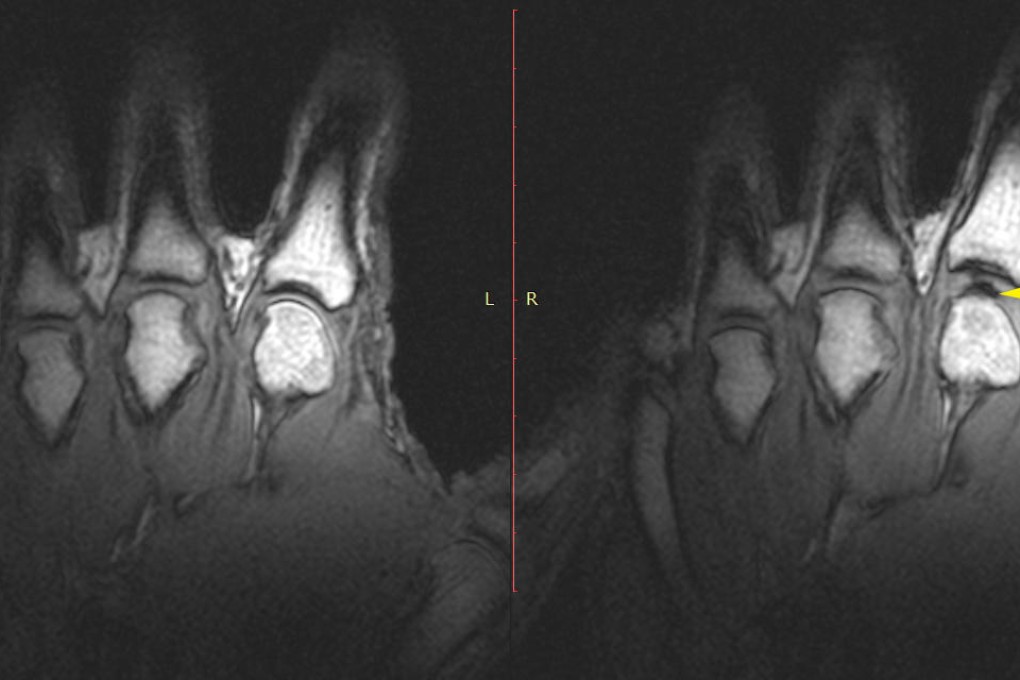
Pop quiz: does knuckle cracking cause arthritis? Scientists have calculated that the amount of force at work when you crack your knuckles has enough energy to cause damage to hard surfaces, yet studies show that the habit does not appear to cause long-term harm.
Scientists in Canada have taken a step closer to an answer by discovering what exactly happens when a knuckle is cracked that causes the distinctive popping sounds.
Through magnetic resonance imaging (MRI) video, the University of Alberta researchers observed that the cause is a cavity forming rapidly inside the joint.
"By defining the process underlying joint cracking, its therapeutic benefits, or possible harms, may be better understood," write the international team of researchers in their study published last week in PLOS ONE.
The researchers found a subject, a local chiropractor named Jerome Fryer, who had the ability to not only crack the knuckles in every finger, but also do it repeatedly after a short rest period.
Fryer's fingers were inserted one at a time into a tube connected to a cable that was slowly pulled until the knuckle joint cracked. MRI video captured each crack in real time - occurring in less than 310 milliseconds.
In every instance, the cracking and joint separation was associated with the rapid creation of a gas-filled cavity within the synovial fluid, a super-slippery substance that lubricates the joints.